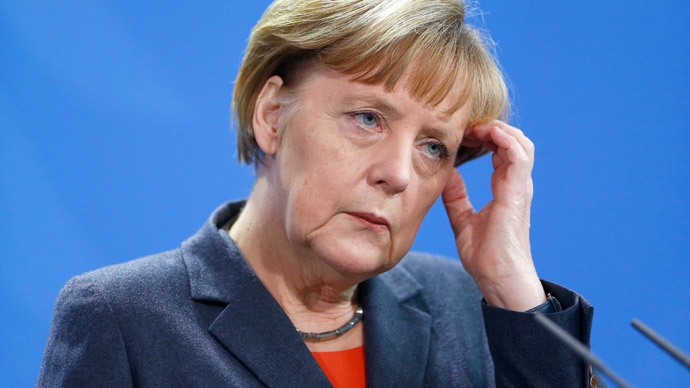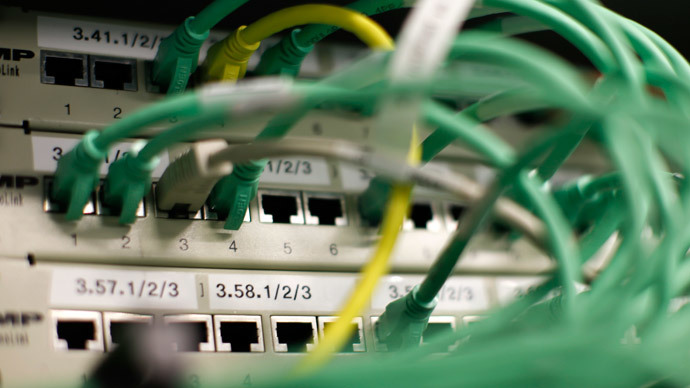German Chancellor Angela Merkel has spoken in favor of distinguishing "between the free internet and the one for special services," saying she will take up the issue with Brussels. Net neutrality advocates have described the approach as “catastrophic.”
Certain online services should be treated in a preferential way,
assuring “a predictable standard of quality,” Merkel
told a Berlin audience Thursday, German news agency DPA reported.
"If you want driverless control of cars, or when you use
certain tele-medicine solutions, then you obviously have to have
an error-free and permanently available connection," she
said.
Merkel argues that currently the internet in Germany isn’t fast
enough for the principle of net neutrality to be implemented.
"We can't talk about net neutrality if the capacity to have
it isn't available," she said.
READ MORE: Will you listen now? Naked porn stars explain why net neutrality is important (VIDEO)
The European Parliament supported the principle of net neutrality in an
April vote. Angela Merkel will try to challenge that at an
upcoming European Council meeting.
Merkel’s stance differs from that of US President Barack Obama,
who last month urged the Federal Communications Commission,
presumably eyeing a creation of paid “fast lanes” on the internet
for some companies, to preserve net neutrality.
"Simply put: No service should be stuck in a 'slow lane'
because it does not pay a fee,” he said.
READ MORE: Obama urges FCC to reclassify internet
amid net neutrality protests
Let's keep the internet free and fair. Support the President's plan to keep #NetNeutrality: http://t.co/aHrpYsijW6pic.twitter.com/znNomfiF89
— OFA CA (@OFA_CA) December 5, 2014
"Merkel's comments are catastrophic, she's calling for a
two-tier internet," Social Democratic Party MEP Petra
Kammerevert told The Local.
German net neutrality supporters have also been worried by what
they see as Merkel siding with big telecom firms.
"The revolutionary thing about the web is that the content
can be decided on by anyone and the principle of it is that
anyone can access it,” said Professor Leonhard Dobusch of
the Freie Universität in Berlin. “But if you poke holes into
net neutrality the way Chancellor Merkel suggests, then it's no
longer democratic."


